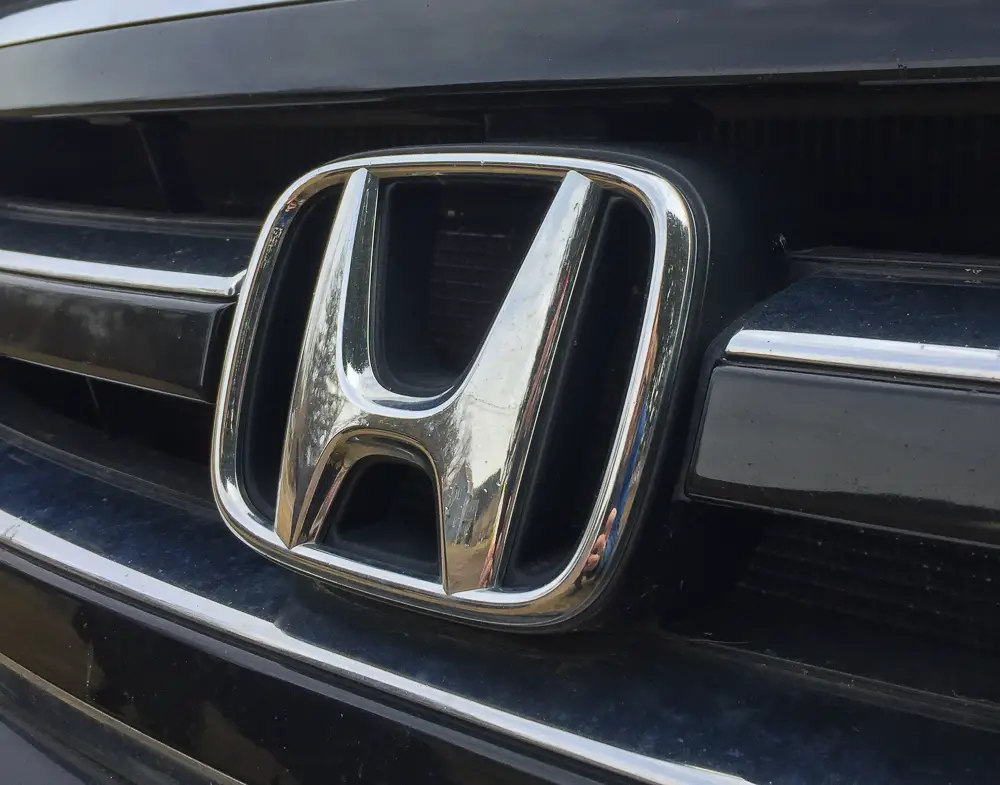With a good name in the market, the Honda Accord has managed to retain the market’s attention for more than two decades now. The newest additions to the lineup are some of the best Honda has come out with. Aside from the powerful engine, the Honda Accord offers polished handling, an upscale roomy interior, and tons of advanced driver-assist features. However, what are the Honda Accord problems you should keep in mind?
Were the previous models equally good? The answer depends on the model year you are looking at. As there are Honda Accord model years that helped make the lineup so popular, there are also some older models that you will want to avoid.
Historically, Japanese automaker Honda has been titled as a trustworthy company that users can depend on. However, as the Honda Accord went through new model years and across generations, problems started to show up. With every iteration of the Honda Accord, something new seemed to have gone wrong.
If your Accord is being too problematic and sending you to the local repair shop so many times a week that it’s practically your second home now, you know that changes need to be done. From engine problems to transmission issues, the Honda Accord problems can become a headache overnight.
The sections below discuss the many problems you may face while driving a Honda Accord.
- Fuel Economy and Performance
- Safety
- Technology
- Interior Room and Cargo Space
- History
- Common Problems
- Complaints
- Recalls
- Average Life
- Transmission Problems
- Parts Replacement
Fuel Economy And Performance
Honda offers 3 transmission and engine combinations for the model. The majority of the trims feature a 1.5L turbo-four paired with a CVT automatic to run the front wheels. A good 192 lb-ft torque and 192 HP is generated by the four-cylinder engine, propelling the Accord to 60 mph from 0 in 7.2 seconds. The fuel economy gets 30 to 38 mpg on the city/highway/highway city or 29 to 35 mpg if you get the Sport trims.
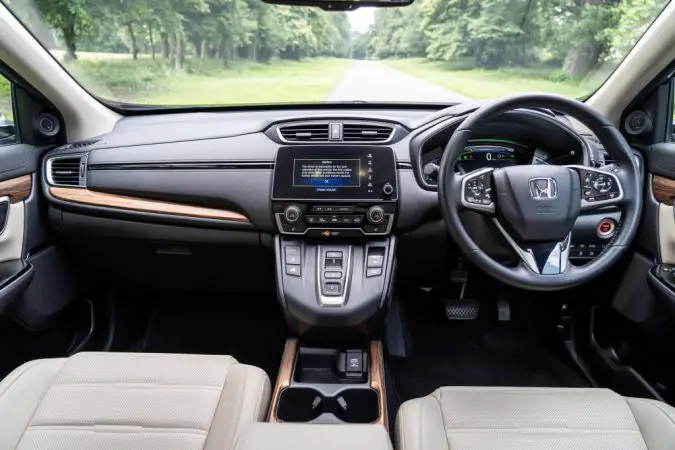
Accord Touring and Sport 2.0T models are powered by a 2.0L turbo-four engine, a revamped edition of the engine you would typically find under the hood of a Civic Type R. That is coupled with a ten-speed automatic for the Accord and it produces 273 lb-ft. torque and 252 HP. Efficiency numbers stand at 22/32 mpg. The 2.0L Accord can hit 60 mph in a bit more than five seconds.
Since 2021, none of the engines can be found with the discontinued 6-speed manual transmission. All 3 Accord engines of the 2021 model year have been fine-tuned to be reactive to throttle inputs, and the manufacturer claims that the brakes also received retuning to be smoother.
Safety
The Accord received a 2020 IIHS Top Safety Pick+, which essentially translates to the car earning the highest possible crashworthiness rating on the board, alongside Advanced and Superior front crash prevention scores. The 2021 model year got Good and Acceptable ratings designated to the 2 LED headlight variants. The NHTSA also gives the Accord a five-star safety rating (overall) with an impressive five-star rating in each test.
Apart from the safety rating, the Accord offers a list of convenient standardized driver-assist active safety features. Lane keeps assist, automatic emergency braking, automatic high beams, and adaptive cruise control are included in every Honda Accord. New additions include a seat belt reminder and a rear-seat reminder for the 2021 model year – a feature you can find on every Accord from this year.
Technology
The 8” touchscreen setup has become the standard across the lineup, regardless of model year or trim. Android Auto and Apple CarPlay are also standard, and they can be connected through Wi-Fi on the Accord Touring, EX-L, and Sport 2.0. The Touring also gives you the power to lock, unlock, and monitor your car from your smartphone, as well as alert you if there is a collision.
Interior Room And Cargo Space
Most midsize sedans seat 5 people across 2 rows. Rear seat passengers front 40.4” inches and legroom has 42.3”. The cargo volume measures at a decent 16.7 cubic feet in both standard and hybrid variants.
The History Of Reliability Of The Honda Accord
As of 2021, the Accord is celebrated as one of the most dependable cars on the road. Out of the 10 generations, the current one is definitely the best. They have made appearances on multiple top-10 family sedan lists.
With a nice balance of power and efficiency, comfort, and versatility, the present generation that started in 2018, offers a good list of options. Watch this video for an in-depth view of the Accord.
However, if you plan on getting an older model, you have to do some homework. According to CarComplaints.com, Accord’s sixth, seventh, and ninth-generation all scored a one star out of five on the reliability index.
If, however, you’re looking for an older model, you’ll be wise to do a bit of research. In fact, these three generations are the lowest rated vehicles for reliability within the Japanese legend’s lineup.
A few Honda Accord problems pop up across generations while many of them are model-specific.
Common Honda Accord Problems
Honda Accord Problems: Transmission Issues
In both the 2002 and 2003 model years, a high rate of transmission problems was reported. According to those, the transmission on 2003 models tends to fail outright whereas the ones equipped in the 2002 Accord jerks and slips between gears.
Unfortunately, to solve both of these problems, the transmission has to be replaced, which is not a cheap affair. This component generally lasts about 150,000 miles, so having to spend thousands on a part that fails after getting 90,000 would put any owner in a bad mood.
Car owners came together and filed lawsuits against the company for the rampant transmission problems within the 2000 to 2001 Honda Accord. But the later models are excluded from the list. This means that if you have an Accord from the later years and it starts displaying transmission problems, you stand to get no advantage from the lawsuit.
Honda Accord Problems: Failure Of Ignition Switch Interlock
On specific passenger vehicles, the ignition switch’s interlock operation might not work properly, making it almost impossible to turn the ignition key into the “Off” position and taking the key out without shifting to the park. If the driver fails to shift the vehicle to park before engaging the parking brake and removing the key, the Accord can roll away.
This problem would occur at around 141,196 miles and the common solution is to replace the ignition switch. Replacement costs between $145 to $180. To solve the issue, dealers will conduct an examination procedure to determine interlock function. A designed interlock will be updated – free of charge. You can reach out to Honda at 1-800-999-1009.
Honda Accord Problems: D4 Light And Check Engine Light Flashing
Shifting problems may develop on Honda accord models. Warning lights start malfunctioning as if on cue. Symptoms include rough shifting and D4 light and CEL (check engine light) blinking. OBD trouble codes P0730, P0700, P1768, P0780, P0740, and /or P1768 are stored by the car’s computer.
In case the transmission starts shifting roughly, there is most likely a mechanical failure. Dirty transmission fluid or a faulty sensor could be the culprit if the transmission continues performing abnormally.
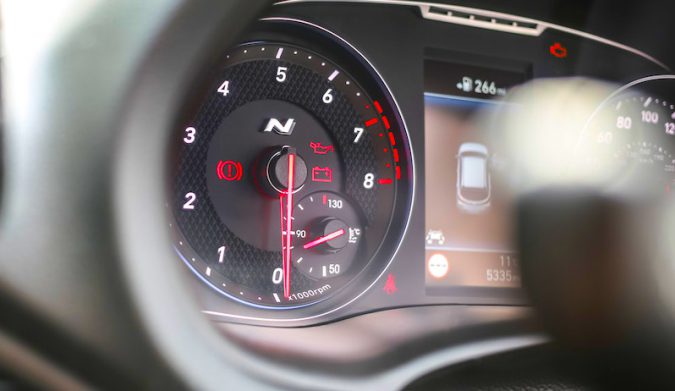
It is usually necessary to utilize professional testing equipment to perform a diagnosis before completing the repair. The lifespan of your car’s transmission strongly depends on the automaker’s suggestion for ATF replacement procedure and intervals.
The blinking problem occurs at approximately 143,301 miles and it affected every car from 1990 to 2016 except the 1993 model year.
Honda Accord Problems: Warped Rotors Cause Vibration When Braking
When the front brake rotors warp, the car can vibrate when the brakes are hit. The vibration will be felt in the steering wheel and brake pedal. Typically, replacing the rotors fixes this problem.
It is highly recommended that you use high-quality rotors. OEM parts are the top choice for brake repairs but you can get by on aftermarket rotors. Ask your mechanic to use the parts they have seen to produce the best results.
In general, the issue starts at 103,000 miles and has shown up in every model made till 2016. The average cost of replacing a brake pad in a Honda Accord is between $210 to $245.
Honda Accord Problems: Climate/Radio Control Display Goes Dark
One of the more minor Honda Accord problems you can encounter on your car, the radio or climate control going dark is something many model years have struggled with. Affected model years include 1990, 1993, 2000, 2001, and 2003 to 2017. Expect to experience this issue if your vehicle has gotten at least 107,427 miles on it.
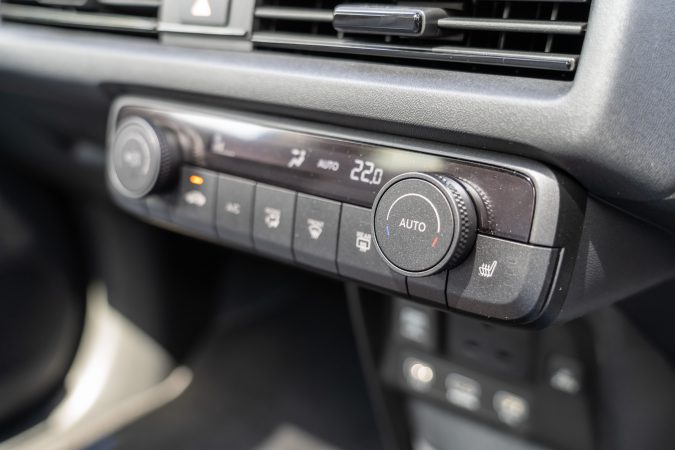
The common solution is to replace the control display, but make sure to get a mechanic to diagnose the car before that. You have to spend anywhere between $88 to $111 to get a general diagnosis for your Honda Accord.
Honda Accord Problems: Power Door Locks Activate Intermittently
Due to a fault in the door lock actuator, the power door lock activates automatically. Many signs can tell you that the power door actuators have failed. For instance, the doors don’t lock or unlock, and/or they lock themselves.
In several cases, the problems show up intermittently without a fixed pattern. Once the mechanic decides there is an issue with the door actuator, it has to be replaced.
Starting from its year of inception – 1990, to the ninth generation Accords till 2016, every model year displayed power door lock problems. This issue would occur at 104,556 miles on average.
Honda Accord Problems: Failure Of Air Conditioner
The air conditioning condensers are sensitive components of the car. If they lack protection, they can damage easily due to the accumulation of road debris. When that happens, the AC system does not blow cold air. Fixing this issue generally takes $300 to $470. Till 2016, all models suffered from this error.
Honda Accord Problems: Cracking Front Compliance Bushings
Cracks developing on the front compliance bushings is a rather common incident. If that happens, the bushings need replacement. Some drivers reported noises emitting from the front suspension when the car moved at low speeds and hit speed bumps.
The bushings can be found in the front control arms and you do not have to replace the latter to change the bushings.
The problem that generally started at 100,285 miles is a common issue in model years 1997, 1999, 2001 through 2013.
Honda Accords That Have The Highest Number Of Complaints
Certain Honda Accord models are more prone to malfunctioning than others. These are the worst Honda Accord model years you most certainly should not purchase.
Honda Accord 2002 And 2003
As mentioned earlier, the 2002 and 2003 Accord models have some severe issues with premature transmission failure. In addition to that, there are multiple problems with the poor airbag system. Many owners complained that the airbag system light illuminates, saying there is a problem. However, servicing the vehicle does no good as the airbag system remains the same.
The 2002 and 2003 Accord got into many accidents where the airbag didn’t deploy timely, leading to horrible injuries that could have been prevented in the first place. Although servicing these airbags isn’t that expensive, the incurred medical bills surely were.
Honda Accord 2008 And 2009
Premature brake wear was a common Honda Accord problem with the 2008 and 2009 model years. Owners had to change the pads every 12,000-20,000 miles. While not very pricey at first, these repairs quickly added up. Moreover, there were significant issues with the engines. Owners stated that their Accord consumed much more fuel than expected.
The only solution is to fix that component which will set you back $1,200 at the very minimum. If there are engine problems in your 2008 to 2009 Accord, this can be the cause.
Lastly, the airbag problems continued on the 2008 and 2009 models. The fact to note: they were not that widespread.
Honda Accord 2013
The 2010 to 2012 model years were not the best, but they are certainly better than 2013 one. Drivers reported difficulty dealing with the vehicle’s starter since it was prone to failure. The most frustrating bit is that this issue suddenly expires the moment the warranty expires, leaving the owners to pay $700 to replace the component.
However, this is only one of the many problems this model had. Owners also reported failure of the power steering function – a problem that puts the lives of the passengers and pedestrians at stake. On one end, Honda paid to fix the problem for some people, but most of them had to foot the bill themselves, which would come out to at least $500.
Less significant but relevant issues include the malfunctioning audio on the radio system and the uncomfortable seats. Interestingly enough, the engine problems of the 2008 to 2009 models can be found within 2013 too.
Honda Accord Recalls
It can be said that today’s great Accords are a result of numerous trials and errors on Honda’s end. On many occasions, they have had to recall vehicles to solve problems that got too severe to limit to the local mechanic and repair shop.
1998 Recall
In 1998, the Japanese automobile manufacturer announced a recall to solve an issue that prevented the Accord’s automatic transmission from choosing and engaging into Park gear entirely. Almost 35,000 Accords were recalled.
2004 Recall
Another recall was announced in early 2004 but the scale was much larger. More than a million vehicles were affected by the Honda Accord’s serious transmission problems and recalled by Honda. When the fear failed, the transmission would lock up, raising the risks of a crash.
In selected passenger cars, minivans, and SUVs, specific conditions were identified which could capture heat between the countershaft and secondary shaft gears. As a result, the parts would overheat and lead to premature gear breakage alongside many other problems.
2010 Recall
Transmission malfunctions became a key area of concern for the Honda Accord as the lineup was subjected to yet another recall in 2010. The problem was that when the driver would remove the ignition key from the gear selector when the vehicle was not shifted properly to park, the car tended to slide away. We don’t have to elaborate on how risky of a situation that is.
More than 550,000 vehicles were recalled. Honda issued the recall to address particular model years, like the 2003 Honda Accord, 2003 to 2004 Honda Element, two- and four-door cars of the Honda Civic lineup, and some more.
2011 Recall
Honda had to announce a recall in 2011 to fix the Accord models years 2005 to 2010 that featured an automatic transmission. These particular cars came with a poor secondary shaft bearing that could snap at any moment, aggravating the transmission problems further.
In the Honda recall, it was stated there are a few driving styles that could cause fractures in the outer brace of the ball bearing. For example, speeding up in narrow lanes, aggressive driving, and starting and stopping frequently. There is a metal band on the outside of the ball bearings which, if broken, would tell the car’s computer to turn on the Check Engine Light.
Moreover, the ball bearing can break, jamming the dislodged part in the space that takes the car into the “Park” position. As a result, the car rolls away.
The Average Life Of A Honda Accord
You can expect a Honda Accord to last about 200,000 miles on average – a figure decided by different consumer reports. Remember that the amount of miles heavily depends on how well the owner maintains their vehicle.
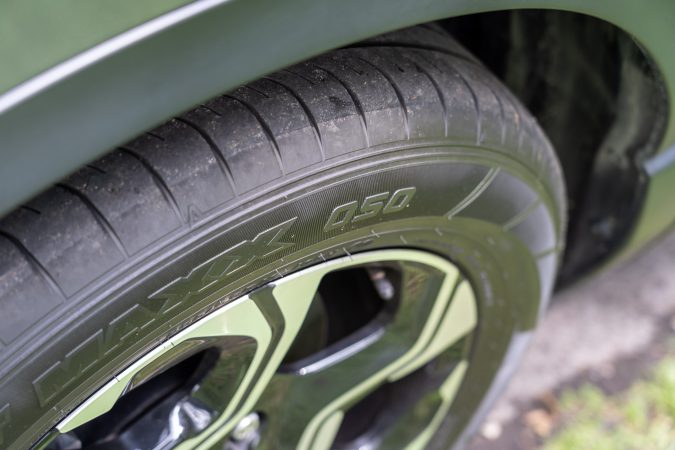
Although this is the average mileage of a Honda Accord, the car can last longer if you make sure to conduct regular maintenance and diagnose all problems – big or small, as soon as they start showing symptoms.
Tips And Tricks To Increase The Mileage
Nobody likes paying thousands to repair their car. Fortunately, timely maintenance can cut the costs in half because you won’t have to bring the car in for repairs as often. Simply bring it for a checkup as often as the maker recommends in the manual. Don’t forget that the car is held together by a collection of powerful yet sensitive parts, so drive properly.
By doing this, you will be extending the mileage to a certain extent. The repairs you will generally have to deal with involve minor repairs and replacements of belts, air filters, light bulbs, oil, or fluids.
Is It Safe To Drive With Transmission Problems?
Don’t disregard the signs your car is giving you; don’t take the Honda Accord problems lightly. The issue will worsen if not provided immediate attention. Worst case scenario: the car will break down completely and you will have to spend a huge amount of money to get it on the roads again. Many of us would be convinced that a car is okay as long as it still turns on, accelerates, or climbs up a hill, but that is not how it works.
Based on the frequency and seriousness of the complications, the repair work has to be completed quickly. There are several pricey and essential parts working together to form the transmission. The harmony is disrupted when even one of the components fails to do its part.
Parts Replacement Requirements Of A Honda Accord
The service life of a Honda Accord’s transmission is dependent on the condition it was in when it was first installed. Given you followed a decent maintenance schedule and handled noticeable issues timely, the frequency of replacement needs should be fewer. You cannot take factory design faults out of the mix.
Considering that, the parts replacement schedule of this car starts at around 130,000 miles (low end).
Having said that, your car will certainly last longer if you take good care of it. In fact, your first replacement could happen after the Accord has 180,000 miles on it. A high-quality transmission replacement job will last you over 180,000 miles.
Honda Turbo Engine Problems and Oil Dilution
- Honda’s reputation for reliability has been damaged by issues with its more recent compact turbocharged engines with direct injection.
- The most notorious Honda engines with problems are the 1.5-liter turbocharged gas engine found in the 5th generation CR-V and the 10th generation Civic.
- The engines experience oil dilution, where gasoline seeps into the motor oil and affects engine performance.
- Honda addressed the issue with a computer update that adjusts the fuel injectors, but the problem persists to some extent in all small turbo engines.
- New engines need some time to break in and settle, which can be helped by taking the car on a series of long highway trips.
- Oil dilution is more prevalent during winter with frequent short trips and city driving.
- The problem can be minimized by getting the temperature up to optimal levels while keeping the RPM higher than needed to burn off excess gasoline.
- Honda’s new turbo engines are generally reliable, except for the 1.5 turbo, which is notorious for oil dilution and turbo failure.
- Turbochargers do reduce engine durability, but the impact is not significant, and they can last up to 150,000 to 250,000 miles with regular maintenance and repairs.
- Honda’s VTEC engine is one of the most reliable gas-powered engines ever made and can run up to 300,000 miles with proper maintenance.
Final Thoughts
Despite the many Honda Accord problems, the lineup does not lose relevance. Some models did struggle a bit and you should certainly avoid those. However, the majority of the Honda Accords through the years are high-performance, family-friendly sedans that are worth the money.

